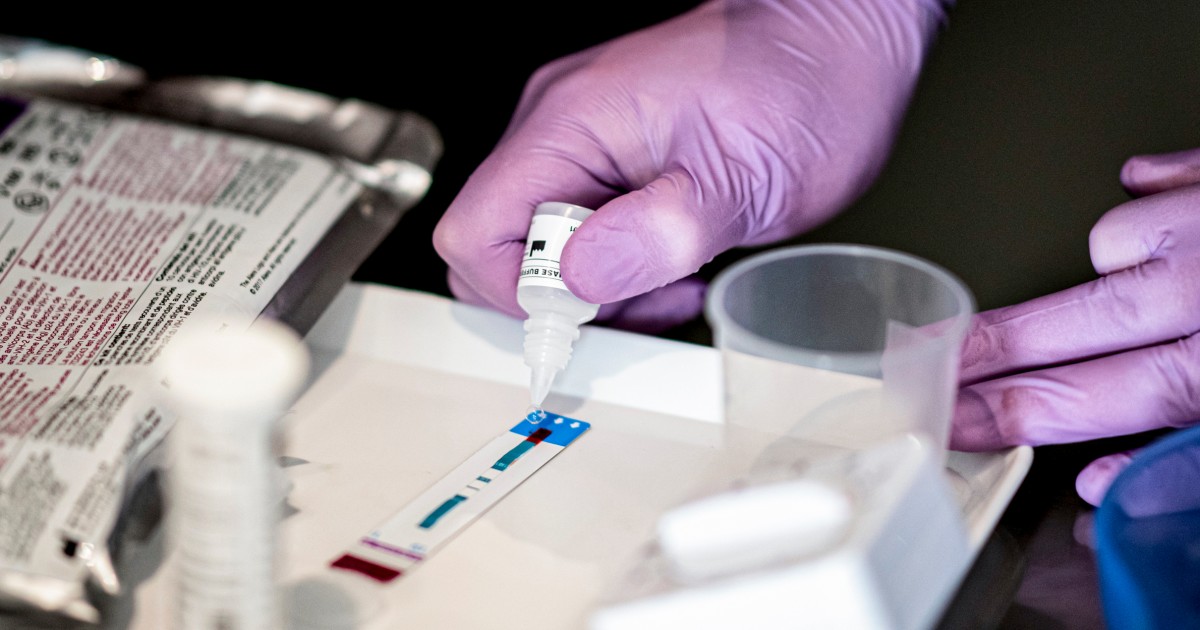Sex and one of the
most frequent types of cancer in men
maintain a close link, in a kind of virtuous circle.
On the one hand, science has studied how
frequent sexual activity
can protect against this type of tumor.
On the other, a routine medical check-up makes it possible to detect it in time and thus access
less invasive solutions
that, among other things, prevent
sexual life
from deteriorating.
Prostate cancer
affects
1 in 7 men in the world and in men it is the most frequent in Argentina, with more than
11,000 cases per year
and a mortality rate of
10.3 per 100,000
.
It affects especially after the age of 50 and is one of the main causes of death among the elderly.
The statement that increased sexual activity prevents this tumor arises from
extensive research
published in European Urology, on 32,000 men over 18 years.
They were asked about the
number of times they ejaculated per month
.
They found that those who did it at least
21 times
had a lower risk of prostate cancer.
And that those who at least had a minimal sexual life also presented less risk than those who directly lacked it.
The second affirmation, that of the annual periodic controls, is a protocol that serves to
detect in time
the eventual appearance of prostate cancer, and that based on this the doctor can decide whether to carry out an active surveillance of the patient or, if the situation deserves to start
a treatment
.
A test called
a prostate-specific antigen
(PSA) test measures its level in the blood.
PSA is a substance produced by the prostate and its values are usually
higher
in men who have prostate cancer.
The value of prostate antigen is key to monitoring a possible tumor in the organ.
Photo Shutterstock.
Juan Pablo Sade, a specialist in uro-oncology at the Alexander Fleming Institute and the Austral University, explains that this periodic control will also result in the actions to be taken
against
a possible tumor being
less invasive
and, consequently, not threaten
sexual life
.
“For good sexual function, the prostate produces seminal fluid, which makes up
most of the semen
.
The prostate contributes to the entire process of ejaculation, orgasm, and is an organ closely related to everything sexual.
To minimize the impact of tumor treatment on sexual life, on
sexual potency
, it must be diagnosed when it is easy to cure, with fewer treatments”, warns Sade.
The expert continues: “Otherwise, the tumor advances, gets bigger and more aggressive.
Then the price is paid, among other things, with
stronger
, more aggressive, longer treatments.
Consequently, less sexual potency, less sexual life.
And if the delay is even longer, it can lead to
metastatic prostate cancer
”.
What happens when prostate cancer goes metastatic?
“The basis of treatment for metastatic prostate cancer is
to cut testosterone
, and there is no fulfilling sex life without testosterone.
In other words, if that instance is reached, for the rest of life there will be nothing, because testosterone feeds this metastatic disease, we
cannot allow it
.
So, to recap, the way to minimize the impact is exactly the other way around, going to the doctor, diagnosing and
curing yourself with less aggressive treatments
, ”warns the doctor.
What is the incidence of prostate cancer and what prospects for a cure does it have?
“Prostate cancer has
good news and bad news
.
The good news is that it is a slow-growing tumor and remains
localized
in the prostate gland for a long time.
The bad, which is
very common
”.
Juan Pablo Sade, specialist in uro-oncology at the Alexander Fleming Institute.
As for the good news, "if one does
early detection studies
-they are not preventive studies, people say preventive, it is not to prevent the disease, it is to detect it early-, it diagnoses it when it is located, and it is highly
curable
”.
Are there
conditions that favor
the development of prostate cancer?
“No, the vast majority of prostate cancers are those that are called sporadic, that is, it touches you because it touches you, because you are a man, because you got big, and with that there is plenty.
There are no
external risk factors
as can occur with other types of cancer”, adds Sade.
Since most of the time prostate cancer is diagnosed localized, it is usually cured with
radiation, surgery or hormones
.
"But some cases come to the clinic when they have metastases," says Sade and explains: "When the tumor has already gone from the gland to the lymph nodes, to the bones, because it was not treated on time, or because despite having treated returns with more aggressiveness, we are faced with a significant number of men who have a disease with metastasis, and this disease
is incurable
”.
What can be done then in such cases?
“The objective has to be the
chronification of the disease
, so that the patient can live with the disease for a long time.
And may that time be with quality of life.
Recently there was an important novelty and it is a drug that has been approved by ANMAT,
darolutamide
”, continues Sade.
What is darolutamide?
“In this advanced stage of prostate cancer with metastasis, during the last 15 years we have made key advances: we have
doubled the lifespan
of this disease and greatly improved the results.
Darolutamide is a drug that
blocks the testosterone receptor
(prostate cancer is very strongly dependent on testosterone) and is very innovative in its chemical formula and detection mechanism.
Another very good thing is his
tolerance
”.
At what age should you start controlling yourself?
“At
50 years old
.
That is the short answer.
But there is another a little longer: you have to start at 50 in the general population, those who do not have risk factors.
But if one, for example, has prostate cancer in his family, a father, a brother, a cousin, or if he has breast cancer, or cancer of the uterus, endometrial cancer in his family, or ovarian cancer, he may have to be checked
before
.
There are isolated cases in younger patients, but it is the exception to the rule”.
PS
look also
Cracks and mysterious underground fires reappeared in an agricultural area of Mendoza
Is this how the end of the world will be?: they capture for the first time the moment when a star devours a planet








